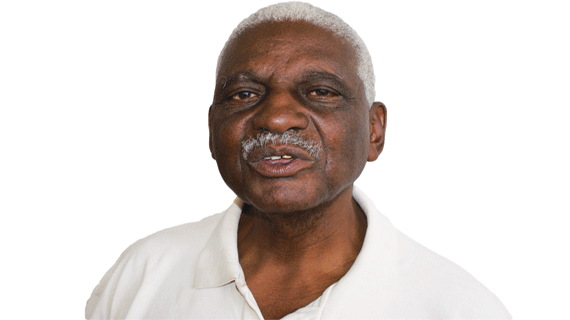
NDEBELE custom prefers that people with blood relationship do not marry each other. If a young man and a woman fall in love and they did not know that they had a blood relationship they immediately break up their love affair.
Sometimes this custom is pushed too far so that even when there is no obvious blood relationship (ugogo wakhe wayethethwe ngumlamu womzawakhe kamalumakhe) marriage between the two young people is not allowed.
However, if marriage becomes unavoidable such as when a child is expected a special fine is charged to “wash off” the relationship (ukugeza/ukuquma ubuhlobo). The payment is in the form of a white female goat.
The fact is that this is only a mere compromise measure as it does not actually wipe out what relationship may exist.
Marriage opens a wide range of relations between what previously were unrelated or distantly related families.
In Ndebele custom those who are married now have two sets of parents. The man’s biological parents now become his wife’s relational parents. It is rude and offensive for the wife to say unyoko to the husband (konje unyoko uthe uzafika nini lapha?). The husband may legimately say, hawu MaNungu uthi, unyoko wena kasunyoko?
The meaning of which mama is meant is determined by the context and presents no problem to the speakers. This whole concept of dual marital parenthood is enriched by the addition of new terms into the relationship, namely ubabazala and umamazala.
The wife calls the husband’s father ubabazala and his mother umamazala. The husband uses the same terms for his wife’s biological parents. The relationship engendered by this cross parenthood is expressed by honorary respect.
- Chamisa under fire over US$120K donation
- Mavhunga puts DeMbare into Chibuku quarterfinals
- Pension funds bet on Cabora Bassa oilfields
- Councils defy govt fire tender directive
Keep Reading
Father-in-law gives special respect to daughter-in-law and vice versa so much so that the daughter-in-law does not look at the father-in -law in the face, does not eat in front of or in the presence of father-in-law and more strictly does not pronounce the name of father–in-law or any combination of his name.
For example if father–in-law’s name is Meyiswa-eyiswa (passive of –eyisa) the word yeyisa becomes taboo to her and she may resort to delela in all instances. Ukuthi uyangeyisa becomes kutsho ukuthi uyangidelela.) This is part of the ukugcwigcwiza system of speech.
Thus, umganu > umcephe, indlela>inaba, ikhanda> ichuza, umlomo > umqitho and so on. Crosswise father-in-law cannot repeat daughter-in-laws’ name. The same relationship applies in the relationship between mother -in-law and son-in-law.
Does the following sentence sound funny?
Bamhaqazele ingimba yecelegwana wathi eyidla waziluma umqitho. (Bamosele inyama yejuba wathi eyidla waziluma umlomo).
Physical contact between son-in-law and mother-in-law is avoided at all costs. They do not shake hands when they greet each other. Son–in-law is expected to perform petty services to his in-laws and provide material support.
Hence, umkhwenyana yingxoza. In the same vein umalokazana ngumfazi walapha ekhaya (cooking, fetching water and firewood, cleaning , washing etc ). She must have unlimited stamina.
A variety of terms are used to designate marital relationships. The parents of the husband and wife refer to each other as usebele. When I say usebele wami I mean the parents of my child’s spouse. The two parties are more or less on an equal footing and are now relatives.
The wife’s parents call her husband umkhwenyana and his parents call the wife umalokazana (not malukazana). The husband’s relatives become his wife’s relatives as brothers, sisters, cousins (abazawakhe) and so on.
She may not say to her husband, Uyihlokazi uNakaNgcili udlule lapha ekuseni. That will be considered rude. She must say, Ubabakazi . . .
The term umkhwenyethu should not be confused with umkhwenyana. Umkhwenyethu is a man married to my sister and it applies to both men and women, that is, he is umkhwenyethu whether I am a man or woman. The same usage applies to the term umlamu. Umlamu wakho refers to (male or female) of your wife.
However, the term umlamu has certain emotive connotations regarding the relationship between a woman’s husband and her younger sisters.
The husband has a wide field of relationship labalamu bakhe. In theory the woman the married the man on behalf of all her younger sisters , (ngabafazi bakhe , zinkomo zakhe , ngumlimela wakhe ).
He may choose to marry any one of them to assist their sister maintain him . Some parents encourage their young daughters to join their sister in marriage to their umkhenyabo. The man (husband) was allowed freedom to “play” with his abalamu (ukulamuza) with no restraint.
Another angle is that if a man’s wife was barren and could not bear children she went, on her own accord, to her people (her parents or some uncle) to ask for an imbokodo, also known as umthanyelo. This would be her own young sister or umzawakhe who became bonded in marriage to her husband.
The children born of this marriage “belonged” to the senior wife, that is, the sister to their biological mother. Poor girl, she has no choice. Her life is decided for her.










